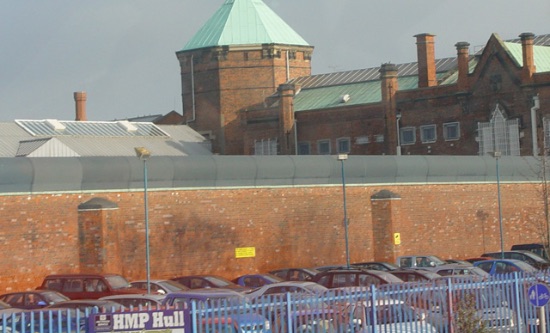
Britain currently imprisons a higher proportion of its population than any other country in Western Europe. As of January 2023, 136 people per 100,000 were in prison in England and Wales, and 134 per 100,000 in Scotland. At the end of 2022, the total UK prison population (including the north of Ireland) stood at 81,806. The government plans to increase this still further and for the prison population to exceed 100,000 by the middle of the current decade. JOHN BOWDEN reports.
In 2022, the Ministry of Justice (MOJ) pledged £4bn to create 20,000 more prison places by expanding the physical size and capacity of 16 existing prisons, and building six new ones, some of which would be ‘mega-prisons’, housing more than 2,000 prisoners each. Since its inception, the planned expansion has had to change and adapt following failures to obtain planning permission due to objections from local residents; however, overall the plan remains on track and there is no doubt that the prison population will continue to soar. Five Wells prison, built on the site of the old Wellingborough prison, opened in 2022; run by private company G4S, it has a capacity of 1,680. A 1,400 place Category C prison is due to open in 2025 next to the existing high security Category A/B prison at Full Sutton outside York.
The Conservatives say that their planned expansion of prisons is motivated primarily by the desire to ‘cut crime’ and ‘rehabilitate prisoners’. The prison system is currently so overcrowded that in February 2023 the MOJ asked the police to let it use 400 places in police station cells. The overcrowding of prisons over the last two decades is a direct consequence of Labour and Tory governments embracing the US model of mass incarceration, a policy which targets primarily the poor working class, and disproportionately black people. The passing of laws such as the Indeterminate Sentence for Public Protection (IPP) and the use of Joint Enterprise to secure multiple convictions from a single incident – together with a hardening carceral approach towards the social consequences of inequality, such as drug addiction and mental illness – have resulted in a significantly expanded prison system in which profiteering private companies play an ever-increasing role.
As always during times of deep capitalist crisis, the scapegoating of marginalised populations is intensified as a means of deflecting public rage away from those truly responsible for the increasing impoverishment of the working class – the real financial, professional criminals who exploit, steal and plunder with impunity.
And also, as ever, the Labour Party actively colludes with demonising disadvantaged groups. Former Director of Public Prosecutions, Keir Starmer, now at the Labour Party helm, accuses the Tories of being ‘complacent’ on criminal justice and has declared Labour to be the true ‘party of law and order’, which promises to recruit 13,000 more police and crack down on anti-social behaviour.
Starmer will also pursue more forcibly the criminalisation of political protest and expansion of laws such as the Police, Crime, Sentencing and Courts Act 2022 and Public Order Act 2023, and alongside the imprisoned poor there will be a growing population of political prisoners. A Starmer Labour government will continue to expand the size of the prison system while overseeing the starving of resources to vital health and social services, and will enable the capitalist state, at a time of deep economic depression and politicised social unrest, to keep its steel boot firmly on the heads of the working class.
Fight Racism! Fight Imperialism! No 294, June/July 2023




